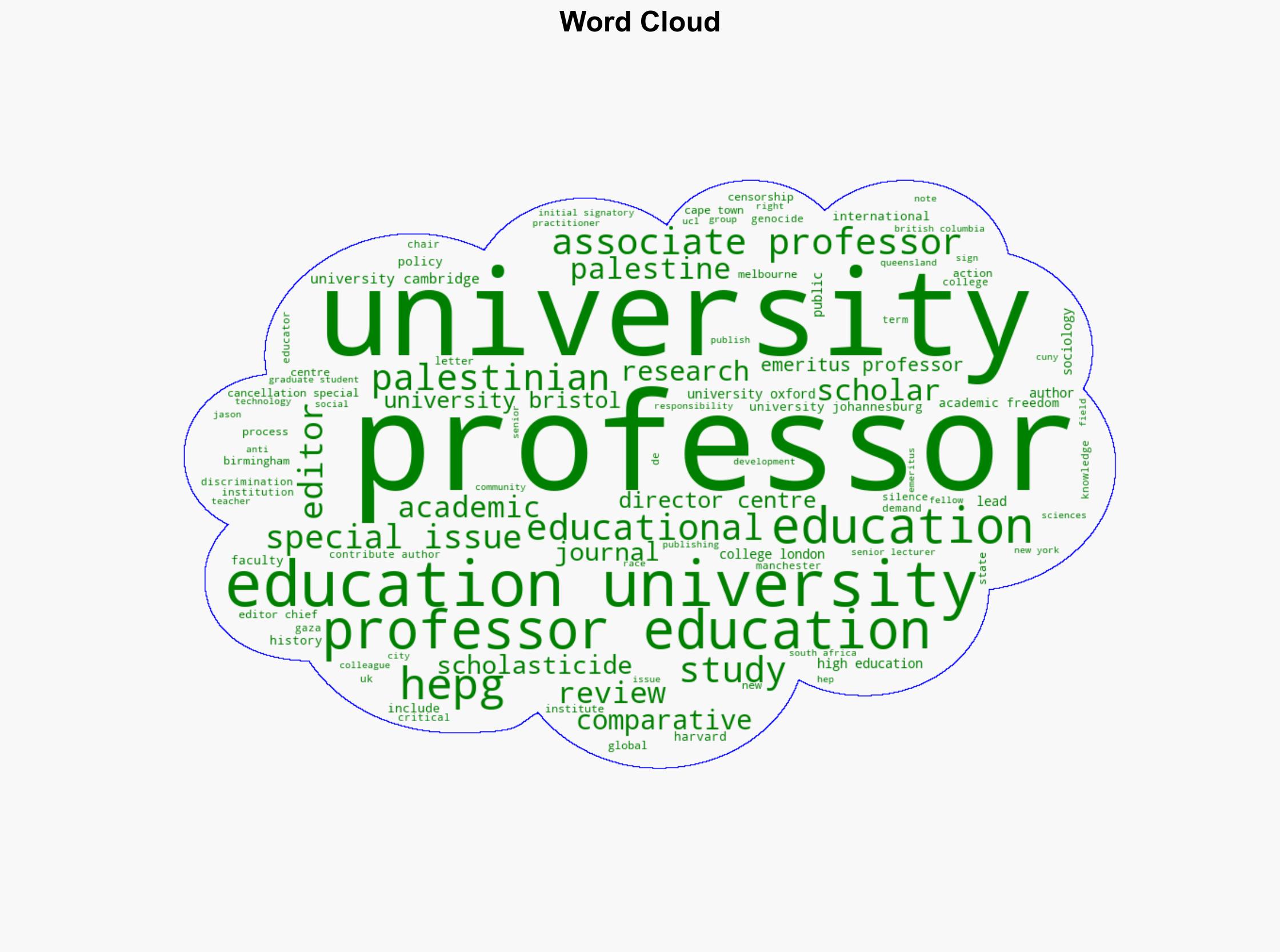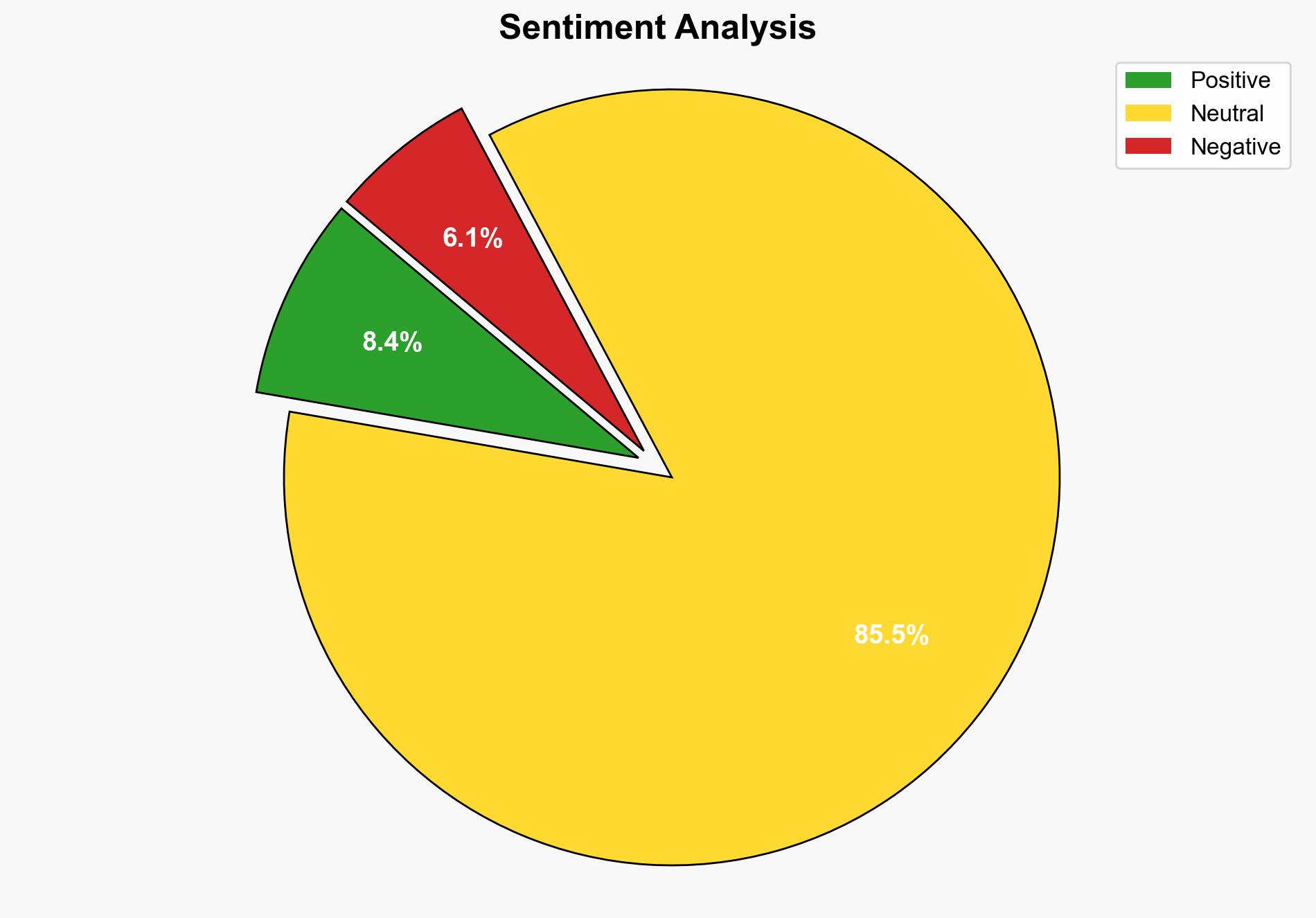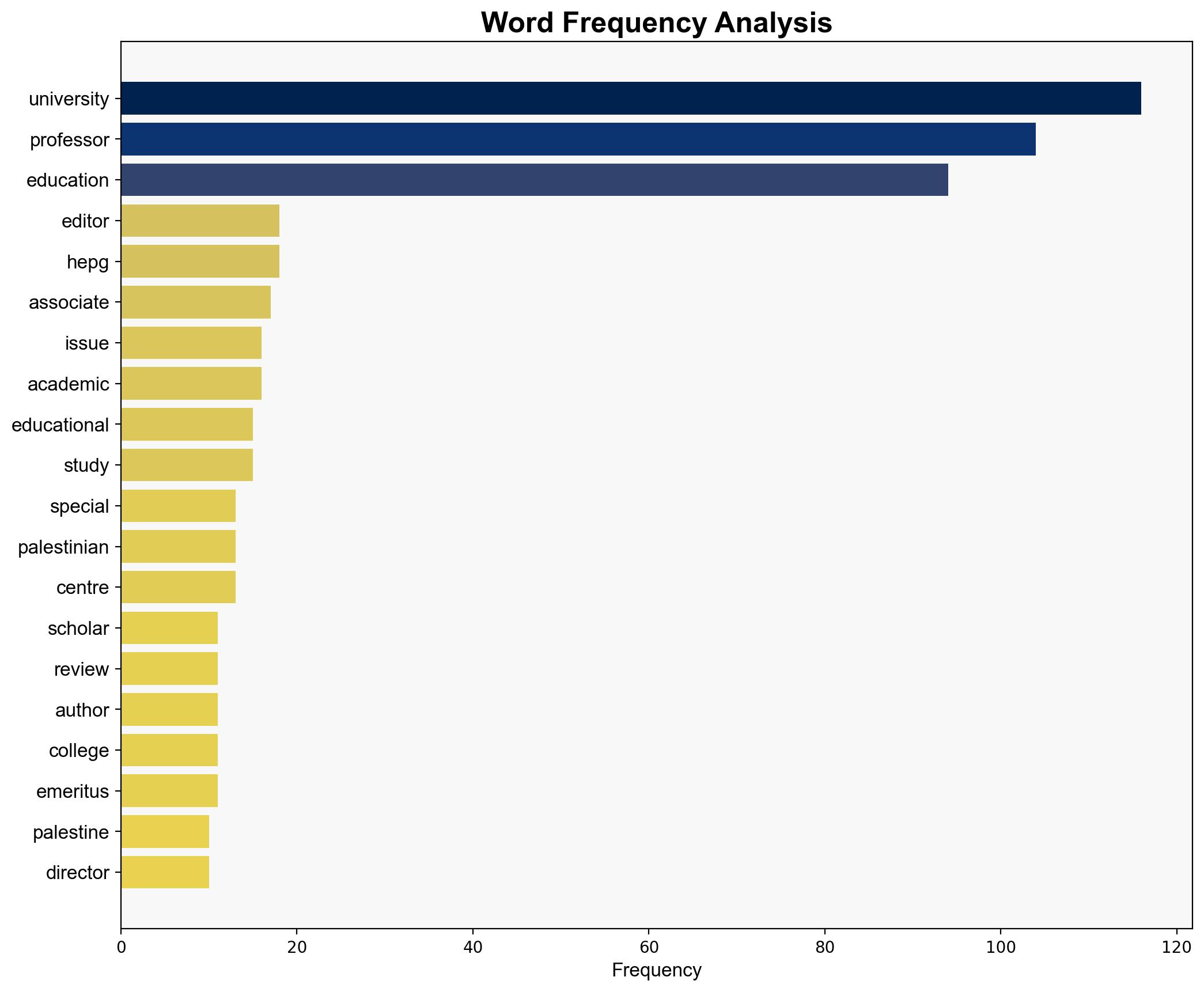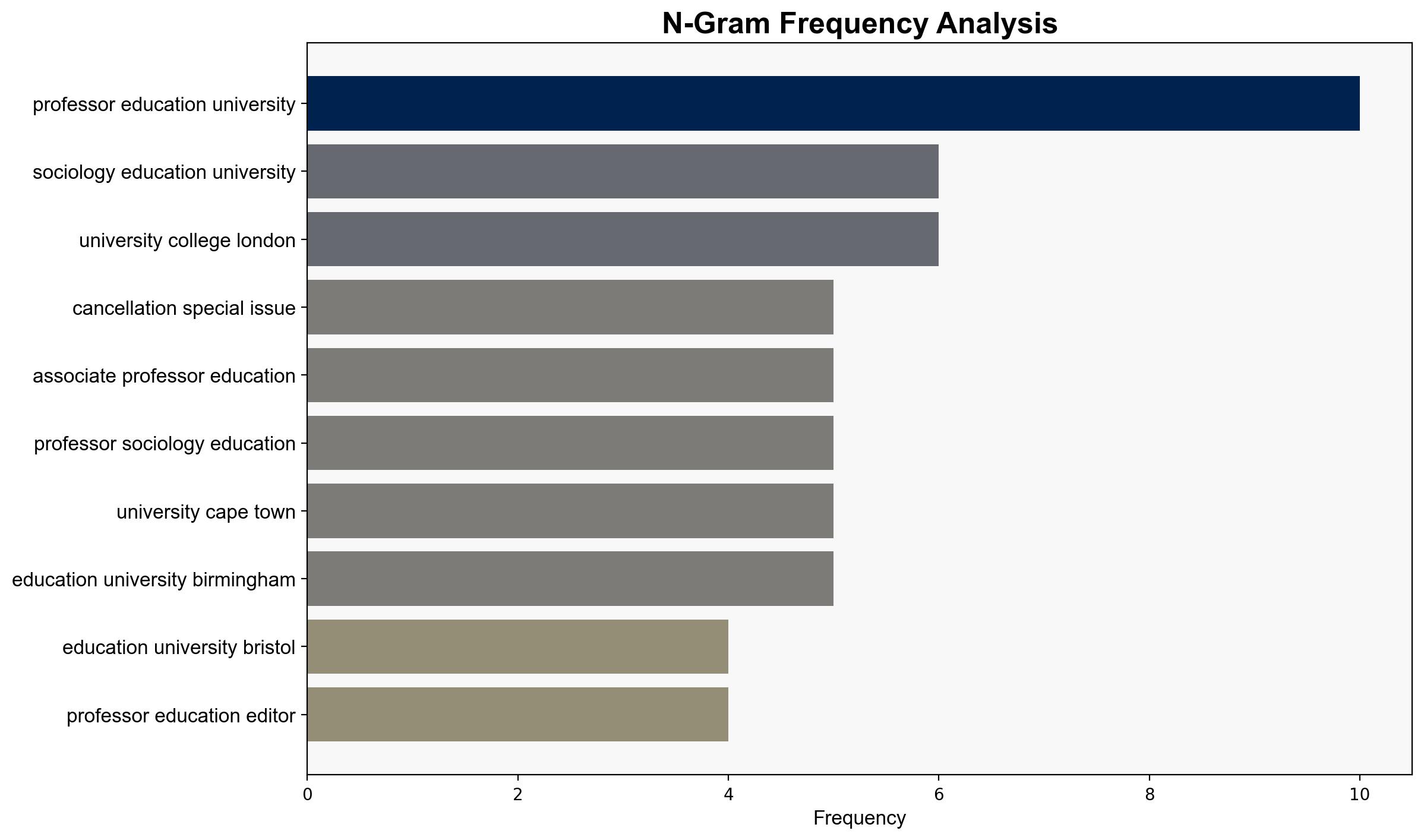Stop Censoring Palestine A public call for accountability at the Harvard Education Publishing Group – Mondoweiss
Published on: 2025-08-24
Intelligence Report: Stop Censoring Palestine A Public Call for Accountability at the Harvard Education Publishing Group – Mondoweiss
1. BLUF (Bottom Line Up Front)
The most supported hypothesis is that the cancellation of the special issue on Palestine by the Harvard Education Publishing Group (HEPG) is an act of censorship influenced by external pressures, potentially from political or institutional stakeholders. Confidence in this assessment is moderate due to the lack of direct evidence but supported by patterns of similar incidents. Recommended action includes advocating for transparency in the decision-making processes of academic publishers and encouraging dialogue on academic freedom.
2. Competing Hypotheses
1. **Hypothesis A**: The cancellation of the special issue on Palestine is a result of external political pressure and censorship aimed at suppressing discourse on Palestinian issues.
– **Supporting Evidence**: The involvement of Harvard University’s Office of General Counsel and the historical context of censorship related to Palestinian topics suggest external influence.
– **Contradictory Evidence**: Lack of direct evidence linking specific external entities to the decision.
2. **Hypothesis B**: The cancellation is due to internal procedural issues or concerns over legal liabilities unrelated to political pressure.
– **Supporting Evidence**: The mention of a legal review by Harvard’s counsel could indicate procedural or legal concerns.
– **Contradictory Evidence**: The abrupt nature of the cancellation and the breach of contractual agreements suggest motivations beyond standard procedural issues.
3. Key Assumptions and Red Flags
– **Assumptions**: Hypothesis A assumes that there is a significant level of external influence on academic publishing decisions. Hypothesis B assumes that internal procedural concerns are sufficient to justify the cancellation.
– **Red Flags**: The lack of transparency in the decision-making process and the absence of a clear rationale for the cancellation are significant red flags. Potential bias exists in assuming either political or procedural motivations without concrete evidence.
4. Implications and Strategic Risks
The cancellation sets a precedent that could embolden further censorship in academic publishing, particularly on contentious geopolitical issues. This may lead to a chilling effect on scholarly discourse, impacting academic freedom globally. There is a risk of escalating tensions between academic institutions and advocacy groups, potentially leading to reputational damage and loss of trust in academic integrity.
5. Recommendations and Outlook
- Advocate for increased transparency in academic publishing decisions to mitigate risks of perceived censorship.
- Encourage dialogue between academic institutions and advocacy groups to address concerns over academic freedom.
- Scenario Projections:
- Best Case: HEPG reinstates the special issue, enhancing its reputation for academic freedom.
- Worst Case: Continued censorship leads to widespread distrust in academic publishing, resulting in decreased scholarly contributions.
- Most Likely: Ongoing debate and advocacy lead to minor policy adjustments but no significant change in publishing practices.
6. Key Individuals and Entities
– Sara Ahmed
– Henry Giroux
– Eve Tuck
– Michael Apple
– Zeus Leonardo
– Nancy Stern
– Karma Nabulsi
– Harvard Education Publishing Group
– Harvard University’s Office of General Counsel
7. Thematic Tags
academic freedom, censorship, geopolitical influence, academic publishing, Palestine, institutional transparency





